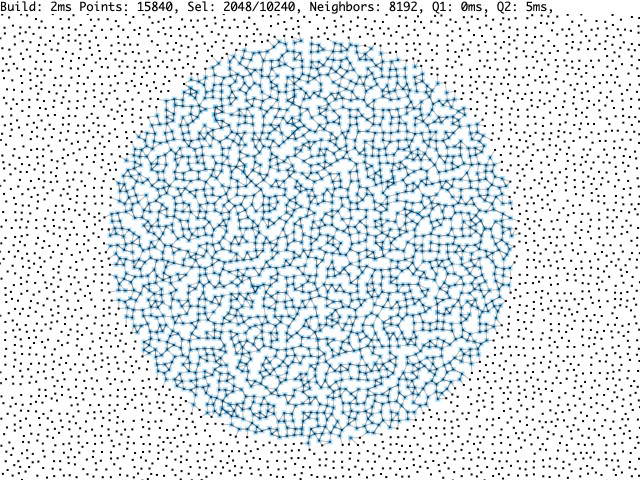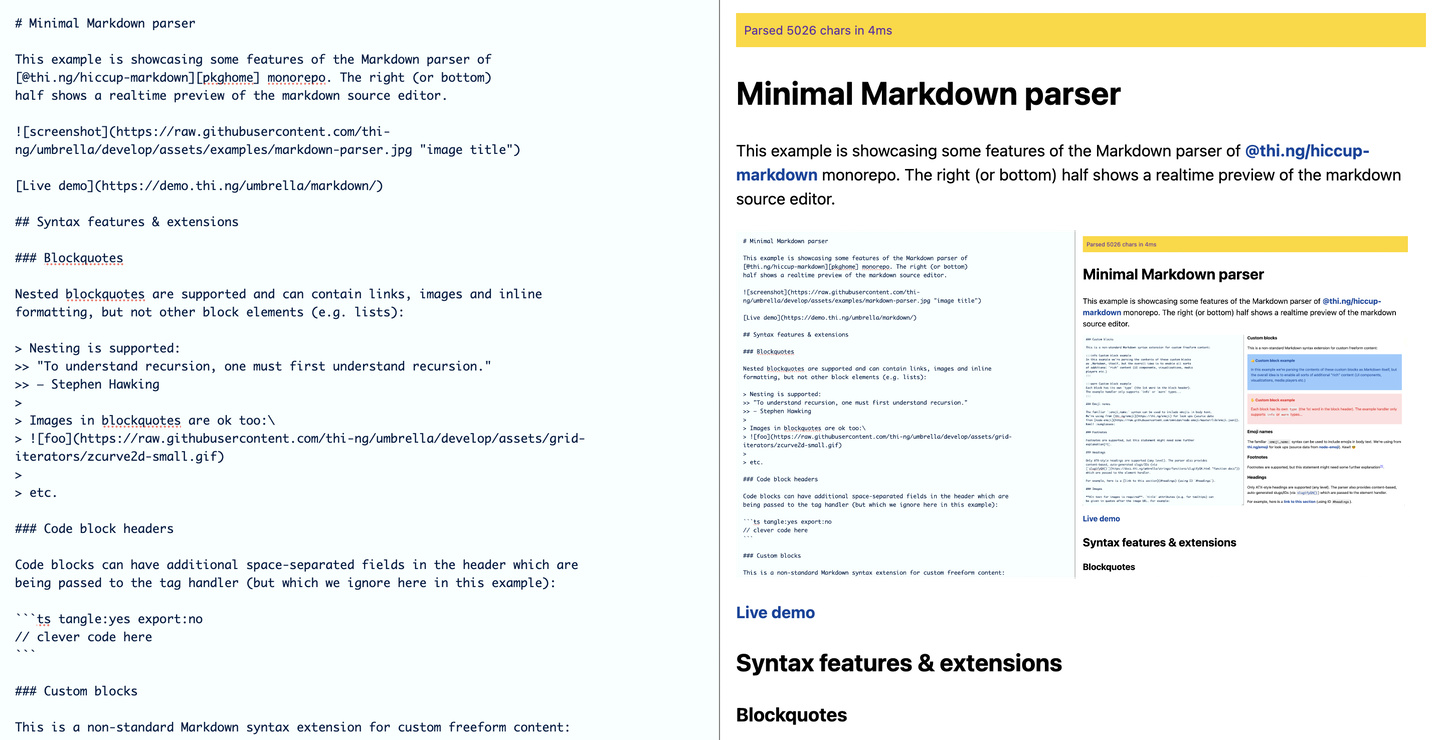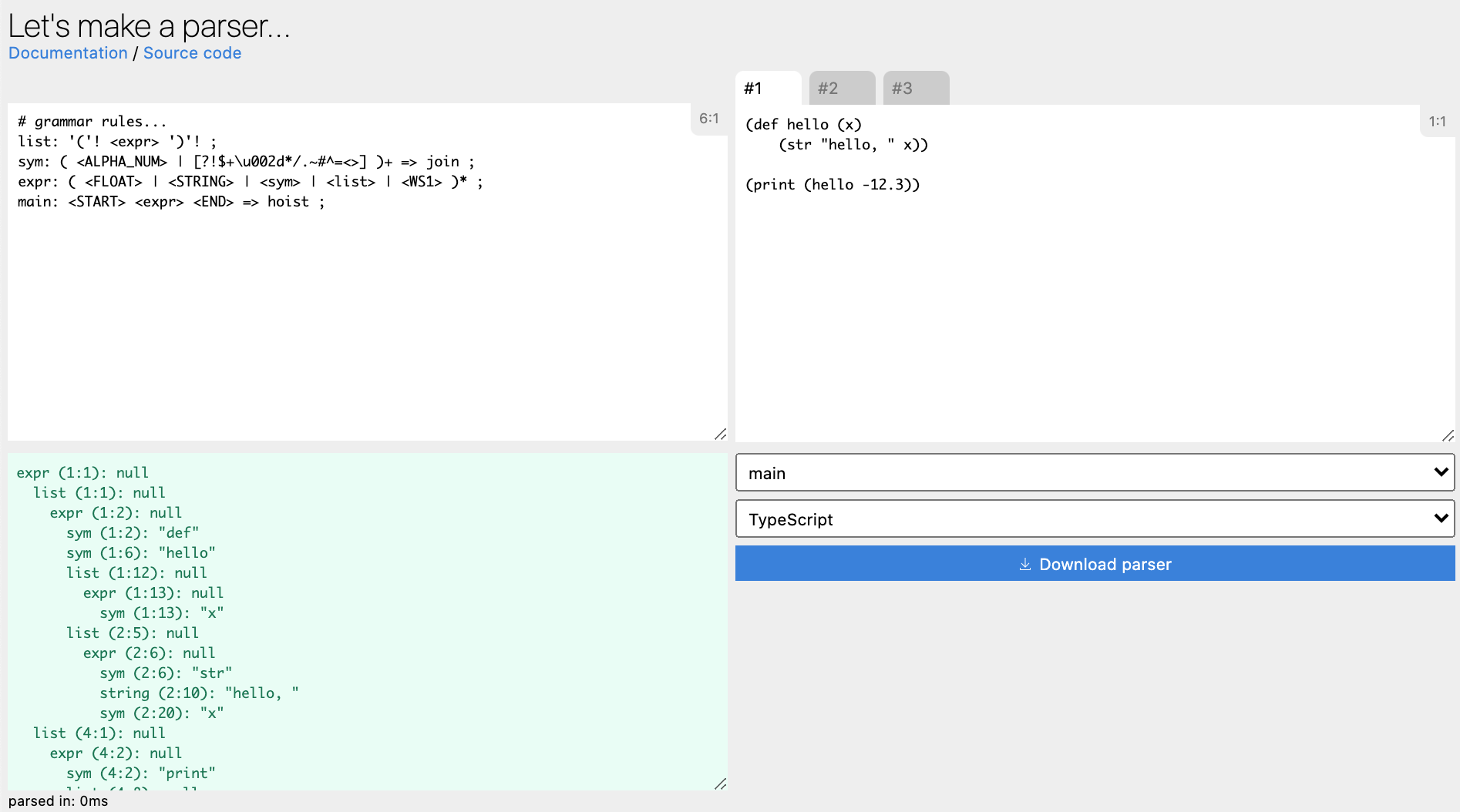
Security News
npm Adopts OIDC for Trusted Publishing in CI/CD Workflows
npm now supports Trusted Publishing with OIDC, enabling secure package publishing directly from CI/CD workflows without relying on long-lived tokens.
@thi.ng/bench
Advanced tools
Benchmarking & profiling utilities w/ various statistics & formatters (CSV, JSON, Markdown etc.)
[!NOTE] This is one of 210 standalone projects, maintained as part of the @thi.ng/umbrella monorepo and anti-framework.
🚀 Please help me to work full-time on these projects by sponsoring me on GitHub. Thank you! ❤️
Benchmarking & profiling utilities w/ various statistics & formatters (CSV, JSON, Markdown etc.).
[!IMPORTANT] As of 2024-12-27, all timestamp-related functions have been extracted/migrated to the new @thi.ng/timestamp package, but are still available here as re-exports too.
STABLE - used in production
Search or submit any issues for this package
yarn add @thi.ng/bench
ESM import:
import * as bench from "@thi.ng/bench";
Browser ESM import:
<script type="module" src="https://esm.run/@thi.ng/bench"></script>
For Node.js REPL:
const bench = await import("@thi.ng/bench");
Package sizes (brotli'd, pre-treeshake): ESM: 2.06 KB
Note: @thi.ng/api is in most cases a type-only import (not used at runtime)
10 projects in this repo's /examples directory are using this package:
| Screenshot | Description | Live demo | Source |
|---|---|---|---|
 | Doodle w/ K-nearest neighbor search result visualization | Demo | Source |
 | K-nearest neighbor search in an hash grid | Demo | Source |
 | Poisson-disk shape-aware sampling, Voronoi & Minimum Spanning Tree visualization | Demo | Source |
| GPU-based data reduction using thi.ng/shader-ast & WebGL multi-pass pipeline | Demo | Source | |
 | Markdown to Hiccup to HTML parser / transformer | Demo | Source |
 | Parser grammar livecoding editor/playground & codegen | Demo | Source |
| Interactive pixel sorting tool using thi.ng/color & thi.ng/pixel | Demo | Source | |
 | Image-based Poisson-disk sampling | Demo | Source |
| Full umbrella repo doc string search w/ paginated results | Demo | Source | |
 | Fork-join worker-based raymarch renderer (JS/CPU only) | Demo | Source |
// functions to benchmark...
const fib = (n: number) =>
n > 2
? fib(n - 1) + fib(n - 2)
: n > 0
? 1
: 0;
const fib2 = (n: number) => {
const res = [0, 1];
for(let i = 2; i <= n; i++) {
res[i] = res[i - 1] + res[i - 2];
}
return res[n];
};
import { timed, bench } from "@thi.ng/bench";
<<test-functions>>
// measure single execution time
console.log(timed(() => fib(40)));
// 318.86ms
// 102334155
console.log(timed(() => fib2(40)));
// 0.05ms
// 102334155
// measure 1mil iterations (default)
console.log(bench(() => fib(10), 1e6));
// 157.41ms
// 55
console.log(bench(() => fib2(10), 1e6));
// 95.97ms
// 55
The benchmark() function executes a number of warmup runs, before
executing the main measurement and producing a number of useful
statistics: mean, median, min/max, 1st/3rd quartile, standard deviation
(as percentage)...
See api.ts for configuration options.
Also see the formatting section below for other output options. This example uses the default format...
import { benchmark } from "@thi.ng/bench";
<<test-functions>>
benchmark(() => fib(40), { title: "fib", iter: 10, warmup: 5 });
// benchmarking: fib
// warmup... 1480.79ms (5 runs)
// total: 2917.41ms, runs: 10 (@ 1 calls/iter)
// freq: 3.43 ops/sec
// mean: 291.74ms, median: 291.67ms, range: [291.51..292.58]
// q1: 291.55ms, q3: 291.79ms
// sd: 0.10%
// also returns results:
// {
// title: "fib",
// iter: 10,
// size: 1,
// total: 2917.4060010000003,
// freq: 3.4277025537660157,
// mean: 291.74060010000005,
// median: 291.668125,
// min: 291.50624999999997,
// max: 292.581834,
// q1: 291.55116699999996,
// q3: 291.788417,
// sd: 0.10295312107365955,
// }
Multiple benchmarks can be run sequentially as suite (also returns an array of all results):
import { suite, FORMAT_MD } from "@thi.ng/bench";
<<test-functions>>
suite(
[
{ title: "fib2(10)", fn: () => fib2(10) },
{ title: "fib2(20)", fn: () => fib2(20) },
{ title: "fib2(30)", fn: () => fib2(30) },
{ title: "fib2(40)", fn: () => fib2(40) },
],
{ iter: 10, size: 100000, warmup: 5, format: FORMAT_MD }
)
// | Title| Iter| Size| Total| Frequency| Mean| Median| Min| Max| Q1| Q3| SD%|
// |------------------------|-------:|-------:|-----------:|-----------:|-------:|-------:|-------:|-------:|-------:|-------:|-------:|
// | fib2(10)| 10| 100000| 93.25| 10723774.45| 9.33| 9.25| 8.94| 10.27| 9.03| 9.46| 4.15|
// | fib2(20)| 10| 100000| 110.73| 9030823.33| 11.07| 11.02| 10.91| 11.56| 10.92| 11.10| 1.76|
// | fib2(30)| 10| 100000| 175.10| 5711056.26| 17.51| 17.58| 17.03| 17.65| 17.50| 17.60| 0.96|
// | fib2(40)| 10| 100000| 200.01| 4999765.64| 20.00| 19.71| 19.34| 21.78| 19.55| 19.91| 3.90|
Same table as actual Markdown:
| Title | Iter | Size | Total | Frequency | Mean | Median | Min | Max | Q1 | Q3 | SD% |
|---|---|---|---|---|---|---|---|---|---|---|---|
| fib2(10) | 10 | 100000 | 93.25 | 10723774.45 | 9.33 | 9.25 | 8.94 | 10.27 | 9.03 | 9.46 | 4.15 |
| fib2(20) | 10 | 100000 | 110.73 | 9030823.33 | 11.07 | 11.02 | 10.91 | 11.56 | 10.92 | 11.10 | 1.76 |
| fib2(30) | 10 | 100000 | 175.10 | 5711056.26 | 17.51 | 17.58 | 17.03 | 17.65 | 17.50 | 17.60 | 0.96 |
| fib2(40) | 10 | 100000 | 200.01 | 4999765.64 | 20.00 | 19.71 | 19.34 | 21.78 | 19.55 | 19.91 | 3.90 |
The following output formatters are available. Custom formatters can be easily
defined (see source for examples). Formatters are configured via the format
option given to benchmark() or suite().
FORMAT_DEFAULT - default plain text formattingFORMAT_CSV - Comma-separated values (w/ column header)FORMAT_MD - Markdown table formatSince v3.3.0 the package also provides a basic profiler to take named measurements and compute derived statistics. The profiler can by dynamically enabled/disabled, supports recursion and estimates/subtracts its internal overhead. Results can be obtained as JSON objects or CSV.
import { Profiler } from "@thi.ng/bench";
// initialize with 1million warmup iterations to compute internal overhead (takes around ~100ms)
const profiler = new Profiler({ warmup: 1e6 });
// recursive function
const countdown = (n, acc = []) => {
profiler.start("countdown");
if (n > 0) countdown(n - 1, (acc.push(n),acc));
profiler.end("countdown");
return acc;
}
countdown(10);
// [ 10, 9, 8, 7, 6, 5, 4, 3, 2, 1 ]
countdown(5);
// [ 5, 4, 3, 2, 1 ]
// obtain results
profiler.deref()
// {
// countdown: {
// id: 'countdown',
// total: 0.028939979283999998,
// timePerCall: 0.0017023517225882353,
// totalPercent: 95.99309794988116,
// calls: 17,
// callsPercent: 100,
// maxDepth: 11
// }
// }
// results formatted as CSV
console.log(profiler.asCSV())
// "id","total (ms)","time/call (ms)","total (%)","calls","calls (%)","max depth"
// "countdown",0.0289,0.0017,17,95.99,100.00,11
If this project contributes to an academic publication, please cite it as:
@misc{thing-bench,
title = "@thi.ng/bench",
author = "Karsten Schmidt",
note = "https://thi.ng/bench",
year = 2018
}
© 2018 - 2025 Karsten Schmidt // Apache License 2.0
FAQs
Benchmarking & profiling utilities w/ various statistics & formatters (CSV, JSON, Markdown etc.)
The npm package @thi.ng/bench receives a total of 201 weekly downloads. As such, @thi.ng/bench popularity was classified as not popular.
We found that @thi.ng/bench demonstrated a healthy version release cadence and project activity because the last version was released less than a year ago. It has 0 open source maintainers collaborating on the project.
Did you know?

Socket for GitHub automatically highlights issues in each pull request and monitors the health of all your open source dependencies. Discover the contents of your packages and block harmful activity before you install or update your dependencies.

Security News
npm now supports Trusted Publishing with OIDC, enabling secure package publishing directly from CI/CD workflows without relying on long-lived tokens.

Research
/Security News
A RubyGems malware campaign used 60 malicious packages posing as automation tools to steal credentials from social media and marketing tool users.

Security News
The CNA Scorecard ranks CVE issuers by data completeness, revealing major gaps in patch info and software identifiers across thousands of vulnerabilities.